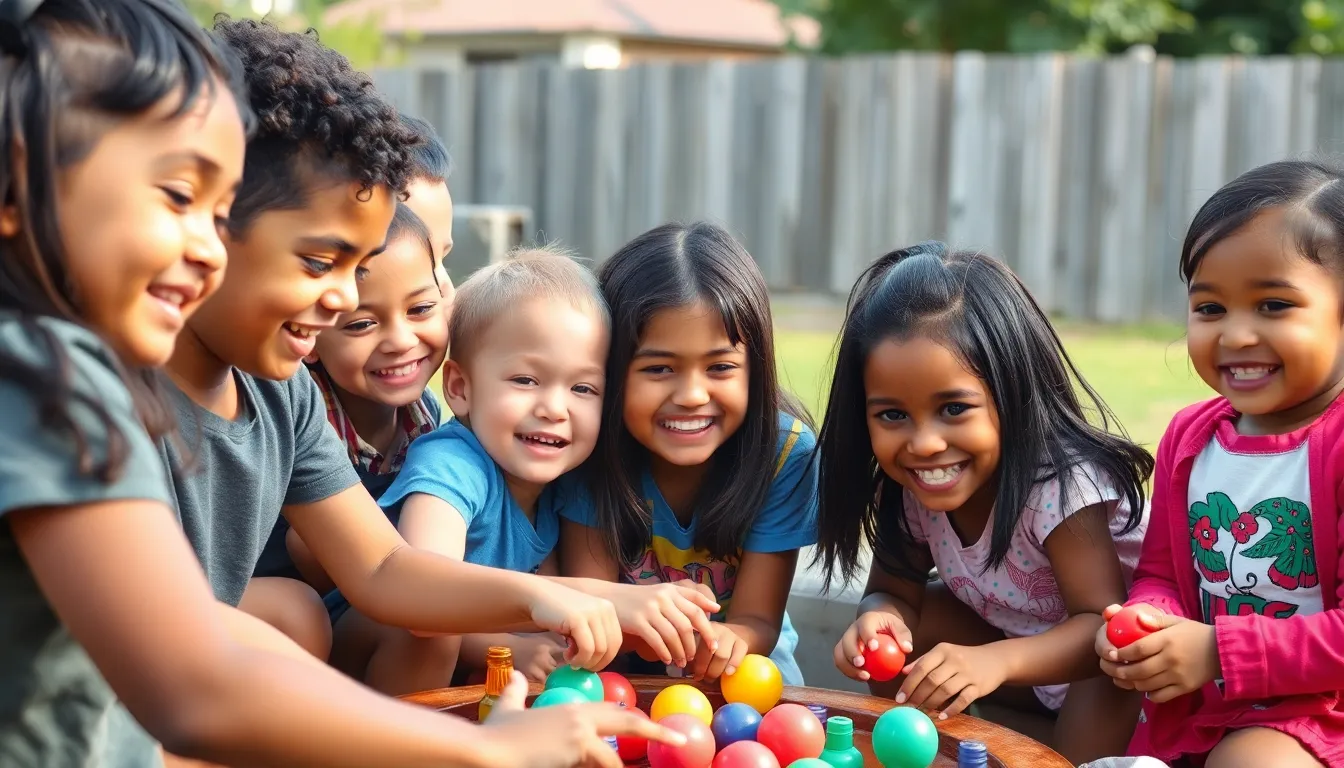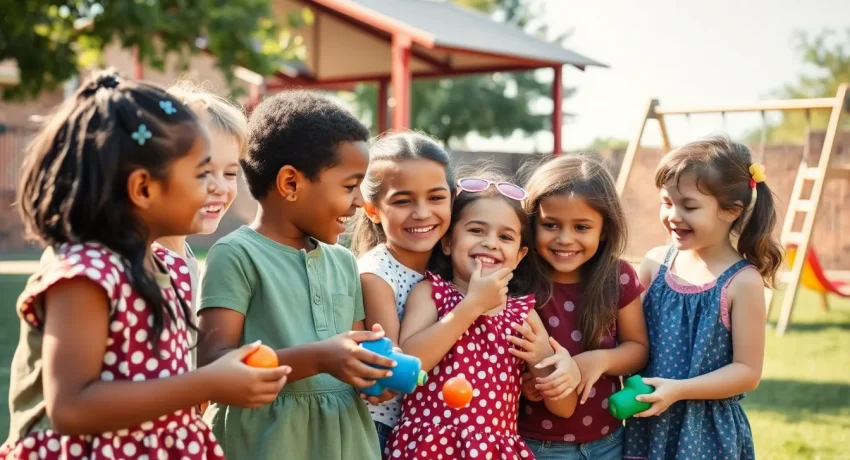In a world where kids can identify a Pokémon by its battle stats but struggle to understand their own feelings, emotional intelligence has never been more crucial. It’s like giving them a superpower that helps navigate life’s tricky social landscapes. Imagine a child who not only knows when to share their toys but also understands why they feel upset when someone else takes them. Now that’s a game changer!
Table of Contents
ToggleUnderstanding Kids Emotional Intelligence
Kids often excel at recognizing stats in video games but struggle to identify their own emotions. Building emotional intelligence equips them with essential skills for navigating social situations.
Definition of Emotional Intelligence
Emotional intelligence involves the ability to understand, manage, and express emotions effectively. It encompasses skills like emotional awareness, empathy, and emotional regulation. Recognizing feelings in oneself and others forms the foundation of emotional intelligence. This understanding plays a significant role in how kids interact with peers. Developing these skills early on fosters healthier relationships and improves communication.
Importance of Emotional Intelligence in Children
Emotional intelligence greatly impacts children’s overall development. It supports academic success and social interactions. Kids with high emotional intelligence handle stress better and are more resilient. They also tend to develop stronger relationships with others. Understanding emotions allows them to navigate conflicts more effectively. As they grow, these skills contribute to better mental health outcomes. Ultimately, strong emotional intelligence in childhood leads to better life outcomes.
Key Components of Kids Emotional Intelligence

Kids emotional intelligence includes several key components that enhance their social interactions and personal development. Understanding these components helps parents and educators support children as they grow.
Self-Awareness
Self-awareness involves recognizing one’s own emotions and understanding how they influence thoughts and behaviors. Kids develop this skill by observing their feelings in various situations. Identifying emotions leads to improved decision-making and better relationships. For example, a child who realizes they feel frustrated during a group activity can address that frustration constructively. Encouraging reflection after experiences allows children to articulate their emotions, enhancing self-awareness over time. Regular discussions about feelings in safe environments further empower kids to understand their emotional states.
Self-Regulation
Self-regulation refers to managing one’s emotions in a healthy manner. Children learn to control impulses and reactions, allowing them to respond thoughtfully in challenging situations. Techniques like deep breathing or counting to ten can help kids pause and reflect before acting. Practicing self-regulation also improves stress management and emotional resilience. For instance, a child who learns to calm down after losing a game demonstrates self-regulation. Establishing routines around emotional responses fosters this essential skill, equipping children to handle disappointments and setbacks more effectively.
Social Skills
Social skills encompass the abilities needed to interact positively with others. Developing these skills helps children navigate social situations with confidence. Effective communication and active listening play crucial roles in forming friendships and resolving conflicts. Engaging in group activities enhances social skills as children practice cooperation and empathy. For example, sharing toys and collaborating on projects builds teamwork and respect for others’ feelings. Children who develop strong social skills exhibit higher emotional intelligence and are better equipped to build meaningful relationships.
Benefits of Developing Kids Emotional Intelligence
Developing emotional intelligence in children brings numerous advantages that positively influence their growth and interactions. Skills in emotional awareness, regulation, and empathy pave the way for a healthier emotional landscape.
Improved Academic Performance
High emotional intelligence contributes to improved academic performance. Students with strong emotional skills engage more fully in classroom activities. This engagement enhances focus, participation, and persistence on academic tasks. Children adept at managing stress exhibit better resilience during exams and challenging projects. Research shows that emotional intelligence correlates with higher grades and deeper comprehension of subjects. By recognizing and expressing their feelings, students create a positive learning environment, benefiting both them and their peers.
Better Relationships with Peers
Emotional intelligence fosters better relationships with peers. Children understanding their own emotions can empathize with others, facilitating deeper connections. This empathy allows them to navigate social situations more effectively. As a result, conflicts are resolved earlier and friendships flourish. Kids adept at communication can express their feelings and listen to others, strengthening bonds. Ultimately, these skills lead to a supportive network of friends, enhancing overall social well-being and future success.
Strategies to Foster Kids Emotional Intelligence
Fostering emotional intelligence in children involves various effective strategies. These practices can enhance their understanding and management of emotions, paving the way for healthier interactions.
Encouraging Open Communication
Encouraging open communication creates a safe environment for children to express their feelings. Adults can ask open-ended questions to promote dialogue, allowing kids to articulate their emotions freely. Listening actively without judgment helps children feel validated, which is vital for their emotional growth. Providing age-appropriate vocabulary also equips kids to describe their feelings accurately. This practice nurtures emotional awareness, fostering a deeper understanding of their emotional landscape.
Role-Playing and Emotional Expression Activities
Role-playing serves as a fun, interactive method for developing emotional intelligence. Through various scenarios, children can explore different emotions and responses. Activities like storytelling allow kids to identify feelings within characters, thus enhancing empathy. Expressing emotions through art or drama also aids children in recognizing and communicating their feelings effectively. Engaging in group activities enables them to practice social skills in a supportive setting, reinforcing emotional regulation and resilience.
Fostering emotional intelligence in children is a crucial investment in their future. By equipping them with the skills to understand and manage their emotions, they’re better prepared to navigate life’s challenges. This not only enhances their academic performance but also strengthens their relationships with peers.
Encouraging open communication and providing opportunities for emotional expression can significantly impact their emotional growth. As children learn to empathize and regulate their feelings, they develop resilience that will serve them well throughout their lives. Ultimately, nurturing emotional intelligence lays the foundation for happier, healthier, and more successful individuals.




